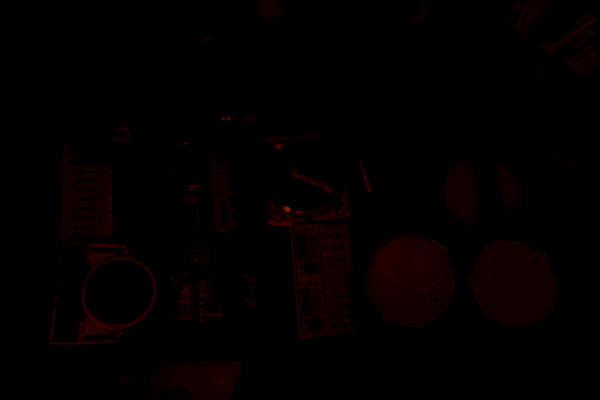Sometimes the coolest and most exciting work I get to do comes along in unexpected ways. Case in point, a few weeks back I was chatting live with Scottlo on the mighty DS106 Radio, and he mentioned that he would be making a rare visit stateside soon. Intriguingly, he would be back in his home town of Eugene, Oregon… not really all that far from Kamloops — at least relative to his recent homes in Japan and Saudi Arabia.
I’m thrilled to report that the idle radio chatter is rapidly manifesting in reality. In less than a week, we will be convening SoundCamp, which is envisioned as a full-day participatory workshop on audio recording, production, sharing and storytelling. I’ve been a huge admirer of Scottlo’s skills, sensibility and humour ever since I first encountered his work on DS106, and getting to tap those gifts feels like an incredible opportunity. While we were at it, I also invited my old pal Jason Toal, who has been honing his DJ moves over the past few years into a rather fearsome skillset. It occurred to me that Christina Hendricks, who I knew at UBC and is absolutely mashing it as a blogger lately (with some great stuff out of the audio exercises in DS106) might be interested, and to my delight she was. Ultra-cool TRU colleague Jon Fulton (who does all sorts of media production) will be pitching in, as will be Andrew Forgrave, who is making his way west by train to join us, our first time meeting our radio friend in person.
So we have quite a team of passionate educators with diverse expertise and experience in audio work. We have a full day… well, five or six hours, anyway. We have gear. What I am still working on is a clear plan for the day. I do have two broad objectives: to have groups of participants each create at least one edited and mixed audio artifact, and to build out the SoundCamp site with resources and tutorials that will serve as an ongoing useful resource for people in the future. But I could use some guidance… I was thinking of the following broad topic areas: selecting equipment, recording, sampling and importing files, basic editing and mixing, sharing. I have a notion that we might break people into groups and move through the process of creating some short pieces that incorporate those elements. But I would be open to suggestions on:
- key skills I have not considered
- some mini-tasks or challenges we might toss into the mix (I will be looking at the DS106 assignment bank for inspiration)
- ideas for using DS106 Radio to connect with people beyond Kamloops
- examples of good tutorials, resources, reflections, advice, etc… preferably openly licensed so we can incorporate them into the site
- some examples of great audio work that stretch the way we think of sound… I’m thinking that next week I will send our participants some teaser emails with examples to get the inspiration flowing
I’m both immensely excited and a little nervous at the prospect of pulling this day off. I do know there is big fun to be had. Hopefully I will be in some shape to post additional developments in the run-up or at the conclusion of SoundCamp.

RT @brlamb: You make my Summer SoundCamp dreams come true: http://t.co/qHx90dOJEg #myTRU Workshop w/ @scottlo @clhendricksbc @draggin @jozb…
One word.
ENVY!
Eagerly awaiting to watch from afar; I still remain slightly skeptical that there is a real Scottlo.
Okay, this sounds very cool. Wow, what an awesome day you guys are going to have. The old radio guy in me echoes Alan’s ENVY!
One thing you might want to consider is some tips on how to do an audio interview as there are some specific things that make interviewing for audio different than video or print. Unfortunately Most of the sources I used to use way back then with my students are long gone (or behind paywalls, damn you BBC Academy and your geographic paywall!) But I did dig up this interview tip sheet from the Radio Diaries project (aimed at teens, but still useful) http://www.radiodiaries.org/trh/interviewing/ specific to audio. This is another resource on how to conduct an audio interview, although not licensed CC, but still useful http://airmedia.org/PageInfo.php?PageID=194
For other audio resources, Transom is a good go-to place (http://transom.org/)
For inspiration, Third Coast radio festival has been showcasing some great audio for years. Their annual ShortDocs competition has a great selection and variety of well produced audio docs, from traditional to experimental all running at just a few minutes. Like The Daily Create, they give out prompts and ask radio producers to work within those guidelines to come up with something unique and interesting. You might find something here http://www.thirdcoastfestival.org/competitions/shortdocs
Finally, it’s not a CC resource and it does cost ($2 for the PDF version ) but a few years ago Ira Glass and the This American Life crew released a graphic novel on how to create great radio (https://store.thisamericanlife.org/ProductDetails.asp?ProductCode=RADIO%3AANILLUSTRATEDGUIDEPDF). It’s a fun learning resource on how they do things TAL style which has been one of my favorite audio storytelling shows for years.
Hope that helps. You guys are going to have a blast.
Thanks for the links to some great looking resources. Until now, I’d only heard of the TAL graphic novel. I can’t wait to get and hopefully use it to prep for TRU SoundCamp.
Won’t everyone be surprised when they find out I’m really @scottlo http://t.co/7DArsgWOS9